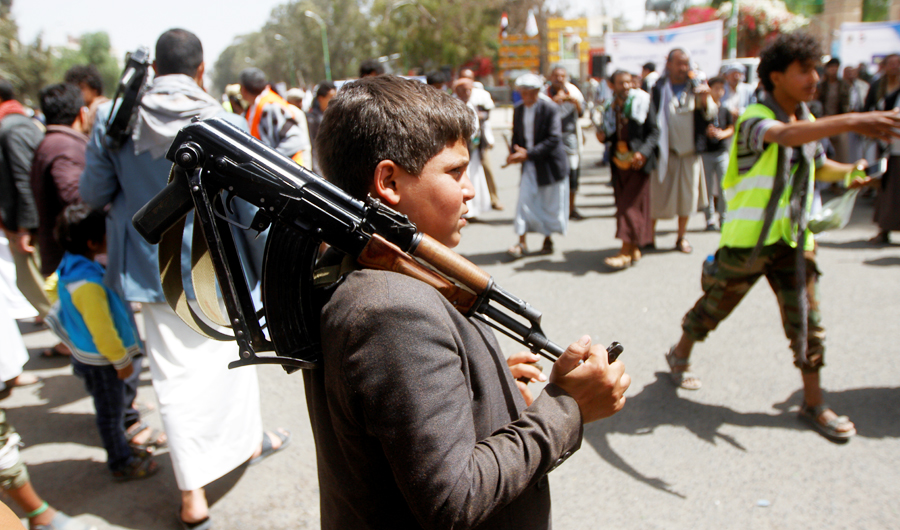AL-MUKALLA: A Houthi spy who was captured in the Yemeni city of Marib said he received training on intelligence information gathering and location sharing from Iranian and Iraqi missile experts in Sanaa.
Yemen’s Defense Ministry recently announced capturing a Houthi cell of two spies who passed locations of military sites to the group.
State media aired a video showing their confessions. According to the video, they provided the militia with sensitive military information and locations of senior army commanders who were hit by Houthi missiles and drones.
Basim Ali Al-Samet, identified by the ministry as the most dangerous member of the cell, described receiving military training and lessons on gathering information and sending locations of military sites and movements of army commanders from Iranians and Iraqis in the capital.
Houthis recruited Al-Samet in early 2019 and installed him in the Ministry of Defense in Marib with the help of his military officer uncle, who also said he had colluded with the Houthis.
Al-Samet spent months in Marib, collecting information about military camps and meetings of ministry officers before traveling to Sanaa to pass the information to his recruiter Zayed Al-Mouyed, a Houthi military commander.
At a meeting with senior Houthi intelligence officers, Al-Samet saw three masked men along with Gen. Abdul Hakim Al-Khewani, the commander of Houthi intelligence, Al-Mouyed and two Houthi figures who listened to the information he had gathered from Marib.
“He (Al-Khewani) told me that you would be meeting with the missile force (team) who would take the information about locations,” he said, adding that the three masked men were from Iran and Iraq and were responsible for launching Houthi missiles. “On their tablet, they showed me a new program with Farsi letters showing locations.”
Al-Samet returned to Marib, where he helped the Houthis launch missile attacks that killed soldiers and civilians.
The ministry said that intelligence information from Al-Samet guided two Houthi missile strikes that targeted the Yemeni Defense Minister Lt. Gen. Mohammad Ali Al-Maqdishi and the army’s chief of staff Lt. Gen. Sagheer bin Aziz in May.
Al-Samet also said he sent the location of lawmaker Moused Al-Sawadi’s house, which the Houthis bombed in January.
Yemeni military experts and officials said the spy’s words were consistent with what the internationally recognized Yemeni government had been saying about the role of Iranian and Hezbollah military experts in supplying the Houthis with military know-how and missiles.
“We are not surprised at all,” Col. Abdul Basit Al-Baher, a Yemeni army spokesman in the southern city of Taiz, told Arab News. “This confirms what we already know about the Iran Revolutionary Guard’s control over Houthi missiles. This shows that people who run the Houthi missile forces from identifying targets to launching missiles are foreign figures from Iran, Iraq and Lebanon. They wear masks during meetings as the Houthis do not trust even their spies.”




